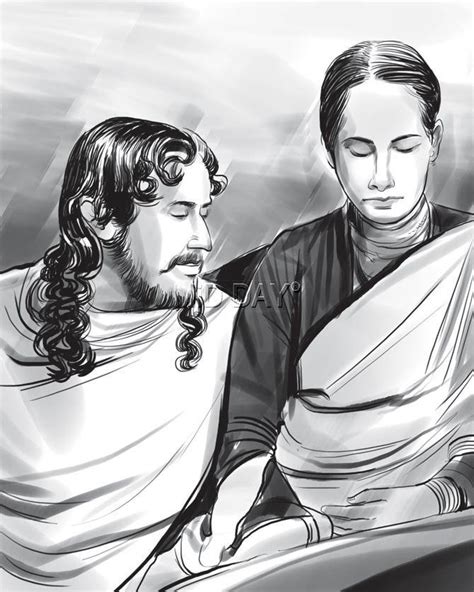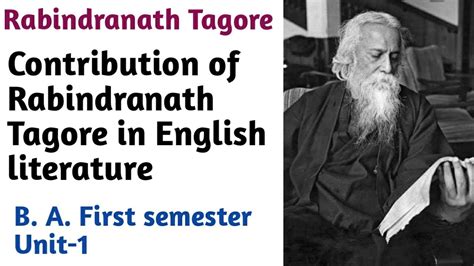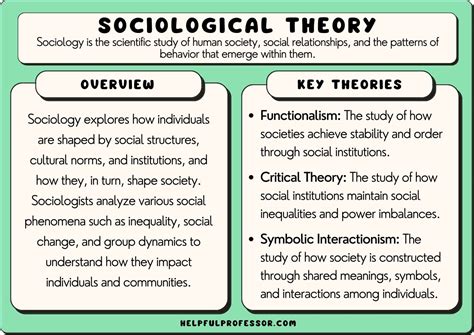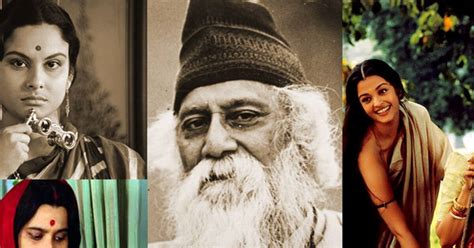Journey through the captivating narrative of an extraordinary figure whose contributions to literature, music, and art continue to resonate across the globe. This article delves into the intriguing story and remarkable impact left behind by a luminary who shaped cultural landscapes, defined societal norms, and redefined artistic expression.
Step into the realm of exquisite poetry and breathtaking melodies, carefully crafted by a visionary who challenged conventions and effortlessly tapped into the depths of human emotions. Uncover the intricate threads that wove together a tapestry of creativity, intellect, and spirituality, leaving an indelible mark on the artistic world.
Prepare to be captivated by a lyrical genius whose verses breathed life into dormant souls, inspiring countless generations with their profound messages. Embark on a journey through the expansive canvas of his literary works, which traverse themes of love, nature, social justice, and the complexities of the human experience.
Immerse yourself in the vibrant tapestry of a polymathic legacy, where creativity seamlessly intertwined with education, philosophy, and social reform. Witness the profound impact of a multifaceted individual who effortlessly maneuvered between various disciplines, leaving an indelible imprint on the realms of literature, philosophy, and visual arts.
Join us on an exploration of the life and creative legacy of this iconic figure, whose influence continues to transcend boundaries, reminding us of the infinite power of imagination and the enduring ability of art to illuminate the world.
Early Years and Educational Background

In this section, we will delve into the formative years and academic journey of the renowned poet, philosopher, and polymath, Rabindranath Tagore, shedding light on the influences and experiences that shaped his path towards greatness.
The chapter of Rabindranath Tagore's life that preceded his rise to prominence was characterized by a rich tapestry of experiences and encounters, which played a significant role in shaping his worldview and artistic sensibilities. Born into a distinguished family in the late 19th century, Tagore grew up amidst a cultural milieu that fostered his innate creativity and intellectual curiosity.
The foundations of Tagore's education were laid in the traditional style of learning, emphasizing a holistic approach that blended academic pursuits with spiritual and artistic development. Guided by adept teachers, he imbibed knowledge from a wide range of disciplines, including literature, music, philosophy, and history.
Tagore's voracious appetite for learning extended beyond the confines of formal education. He sought inspiration from the natural world, drawing from its beauty and diversity to fuel his imagination and creativity. His deep appreciation for nature's wonders formed an intrinsic part of his artistic expression, as can be witnessed in his literary works.
| Year | Academic Milestone |
|---|---|
| 1878 | Began schooling at Brighton Villa School in Kolkata |
| 1880 | Transferred to St. Xavier's High School |
| 1878-1890 | Pursued informal education under the guidance of private tutors |
| 1890-1891 | Enrolled at University College London |
| 1891-1894 | Studied law at the University of Cambridge |
Tagore's academic journey took him across continents, exposing him to diverse cultures and ideologies. His experiences abroad provided him with a global perspective and influenced his approach to literature, art, and social issues.
As we unravel the early life and educational pursuits of Rabindranath Tagore, a deeper understanding of the formative years that laid the foundation for his remarkable creative legacy emerges, revealing a man shaped by a tapestry of experiences and an insatiable thirst for knowledge.
Exploring Tagore's Childhood Influences and Family Background
A deep understanding of Rabindranath Tagore's early years and the factors that shaped his artistic journey allows us to appreciate his immense creative contributions even more. Delving into his childhood influences and family background unveils the roots of his literary and artistic prowess.
Tagore's formative years were marked by a rich tapestry of experiences, and his family played a vital role in nurturing his talents. Growing up amidst a culturally vibrant atmosphere, he inherited a deep appreciation for music, literature, and the arts from his accomplished relatives.
The Tagore family epitomized intellectual curiosity, fostering an environment that encouraged exploration and creativity. Through informal gatherings known as "addas," where friends and family engaged in intellectual discussions, Tagore was exposed to an eclectic range of ideas and perspectives from a young age. These encounters influenced his worldview and kindled his passion for artistic expression.
Furthermore, Tagore's paternal lineage made a significant impact on his artistic sensibilities. His grandfather, Dwarkanath Tagore, was an influential social reformer and prominent entrepreneur who played a vital role in the Bengal Renaissance. Dwarkanath's progressive ideas and philanthropic endeavors left an indelible mark on Rabindranath Tagore, inspiring him to strive for societal change through his art.
Similarly, Tagore's mother, Sarada Devi, played an integral role in shaping his artistic mindset. With her deep spiritual grounding and poetic sensibilities, she instilled in him a reverence for nature and a profound connection with the divine. This intertwined love for spirituality and nature became recurring themes in Tagore's literary works.
As we explore Tagore's childhood influences and family background, we discover the myriad of factors that contributed to his remarkable creative legacy. By establishing a strong foundation through exposure to art, literature, intellectual discourse, and the teachings of his esteemed family members, Tagore's unique artistic vision was nurtured, paving the way for his extraordinary accomplishments as a poet, philosopher, musician, and painter.
Tracing Tagore's Journey through Education and Literary Pursuits

Exploring the formative years of this prominent figure, we delve into Rabindranath Tagore's expansive educational experiences and his unwavering dedication to the world of literature. Tagore's educational journey was marked by a diverse range of institutions and mentors, exposing him to a myriad of knowledge and perspectives. Alongside his education, Tagore's literary pursuits blossomed, shaping him into an acclaimed poet, playwright, and novelist.
- Early Influences and Beginnings
- Formal Education and Cultural Immersion
- The Santiniketan Years
- International Recognition and Travel
Tagore's educational journey commenced with a deep appreciation for his surroundings–a plethora of vibrant experiences that fostered a profound connection with nature and humanity. These early influences provided the foundation for his future literary endeavours, prompting an exploration of themes imbued with profound introspection and a nuanced understanding of the human condition.
Through various formal educational institutions, Tagore's thirst for knowledge was continuously nurtured. Embracing a holistic approach to education, he pursued subjects ranging from literature and history to science and economics, embarking on a quest to comprehend the intricate tapestry of existence. Additionally, his immersion in the vibrant cultural landscape of Bengal further enriched his literary voice, as he absorbed the essence of folk traditions, music, and dance.
A significant chapter in Tagore's educational and literary journey unfolded at Santiniketan, the institution he established in Bengal. Here, he sought to create an environment that celebrated creativity, intellectual freedom, and cultural exchange. Santiniketan served as a melting pot of ideas, attracting scholars, artists, and students from across the globe and fostering a vibrant community dedicated to the pursuit of knowledge and artistic expression.
As Tagore gained international acclaim for his literary contributions, he embarked on numerous journeys, both within and beyond the borders of India. These travels allowed him to engage with diverse cultures, forging connections with influential figures including Albert Einstein and William Butler Yeats. The interplay between Tagore's exposure to various cultures and his ability to seamlessly integrate these experiences into his writings further solidified his status as a globally revered literary figure.
Tracing Tagore's journey through education and literary pursuits unveils a life lived in pursuit of knowledge, enlightenment, and the ceaseless exploration of the human spirit. As an iconic figure in the world of literature, Tagore's legacy continues to inspire generations, inviting them to embrace the power of education and the transformative potential of artistic expression.
Tagore's Impact on Literature and the Arts
Tagore's profound influence on the realm of literature and the arts captures the essence of his genius. His contributions to these fields transcend time and continue to shape the cultural landscape.
Through his eloquent words and imaginative genius, Tagore breathed life into literature, creating a body of work that inspires and enlightens. His exquisite poetry, plays, and novels delve into the depths of human emotions, exploring themes of love, identity, spirituality, and societal issues. Tagore's literary masterpieces resonate with readers of all ages, evoking profound emotions and provoking introspection.
Not confined to the written word, Tagore's impact extends to the world of music. He revolutionized Bengali music by introducing his own compositions, blending traditional melodies with modern influences. His songs, known as Rabindra Sangeet, capture the essence of Tagore's poetry, creating a harmonious fusion of words and melodies that touch the souls of listeners.
Tagore's artistic legacy is not limited to literature and music. He was a visionary in the realm of visual arts, painting and sketching with a unique style. His art showcases his innate talent for capturing the subtleties of emotions and nature, creating visual masterpieces that transcend time.
Furthermore, Tagore's impact on education cannot be understated. He believed in the holistic development of individuals and established the Visva-Bharati University, a unique institution that emphasized the integration of art and academics. This visionary approach to education continues to inspire educators and students alike, fostering a love for learning and cultivating creativity.
In summary, Tagore's impact on literature and the arts reverberates through history, leaving an indelible mark on the cultural fabric of society. His words, music, and art continue to inspire and resonate with audiences worldwide, reminding us of the immense power of creativity.
Analyzing the Impact of Tagore's Literary Contributions

Within the realm of Bengali literature, the influence of Rabindranath Tagore is undeniable. This section delves into an in-depth analysis of Tagore's immense contributions to the literary landscape of Bengal, exploring the various themes, writing styles, and genres that shaped his legacy.
One of the notable aspects of Tagore's literary work is his ability to beautifully capture the intricacies of human emotions. Through his eloquent prose and lyrical poetry, he delved deep into the realms of love, joy, sorrow, and longing, leaving an everlasting imprint on the minds of readers. His writings not only explored the individual human experience but also touched upon universal themes that resonated with people from different walks of life.
Tagore's literary oeuvre also displayed a remarkable versatility in terms of genre. His works spanned across various genres such as novels, short stories, plays, and essays, each showcasing his adeptness in crafting narratives that drew readers into immersive worlds. The richness of his storytelling and his nuanced characterizations helped establish him as a master storyteller, enriching the Bengali literary canon with timeless tales.
| Genres | Themes | Impact |
|---|---|---|
| Novels | Love, social reform, identity | Opened up new avenues of storytelling and examined societal norms |
| Short Stories | Human relationships, morality, introspection | Explored the depths of human psyche and provoked introspection |
| Plays | Social issues, political activism | Brought societal issues to the forefront through powerful dialogues and compelling narratives |
| Essays | Education, nationalism, spirituality | Stimulated critical thinking and influenced socio-political discourse |
Furthermore, Tagore's contributions to Bengali literature went beyond just storytelling. He was a visionary who challenged conventional norms and paved the way for social and cultural transformation. His works delved into themes of education, nationalism, spirituality, and social reform, encouraging readers to question prevailing ideologies and strive for progress.
In conclusion, Tagore's vast literary repertoire encompasses a multitude of genres and themes, showcasing his ability to encapsulate the human experience within the nuanced realm of Bengali literature. His contributions have not only shaped the artistic landscape but have also left a lasting impact on societal discourse, making him an undisputed luminary in the world of literature.
Exploring Tagore's Impact on Contemporary Indian Art and Music
Discovering the profound influence of Rabindranath Tagore on the realm of modern Indian art and music unveils a captivating narrative of cultural transformation and innovation. His creative vision and artistic endeavors resonated with artists and musicians across India, inspiring a unique blend of traditional and contemporary expressions.
Tagore's artistic legacy can be observed through the intricate brushstrokes and melodic compositions that continue to shape the Indian art and music scene today. Artists and musicians alike draw inspiration from his pioneering spirit, embracing his philosophy of using artistic mediums as a means of storytelling and self-expression.
In the realm of visual arts, Tagore's influence is evident in the vibrant landscapes, symbolic motifs, and evocative imagery that pay homage to the rich tapestry of Indian culture. His emphasis on capturing the essence of emotions through colors and forms has paved the way for countless contemporary artists to explore innovative techniques and push the boundaries of traditional art forms.
| Tagore's Impact on Indian Art | Tagore's Impact on Indian Music |
|---|---|
| Artists have embraced Tagore's experimentation with styles and mediums, incorporating elements of cubism, surrealism, and abstract art into their own works. His ability to seamlessly fuse traditional Indian aesthetics with Western influences has brought forth a new wave of artistic expression. | Music composers and performers have drawn inspiration from Tagore's poetic lyrics and soul-stirring melodies. His compositions, infused with a deep sense of spirituality and human emotions, have become iconic anthems that continue to resonate with audiences across generations. |
| The exploration of themes such as nature, love, and spirituality in Tagore's art has influenced contemporary artists to delve into similar subject matters, intertwining personal narratives with universal concepts. His multidimensional approach to storytelling remains an enduring source of inspiration. | Tagore's musical innovations, such as introducing new instruments and experimenting with harmonies, have enriched the Indian classical music tradition. His songs have become an integral part of the cultural fabric, often stirring emotions and invoking a sense of national pride. |
| He challenged societal norms through his artwork, advocating for gender equality, social justice, and religious harmony. Artists today carry forward his legacy by addressing contemporary social issues and promoting inclusivity through their creations. | The influence of Tagore's musical compositions extends beyond the boundaries of India, with artists from around the world embracing his melodies and incorporating them into their own work. His timeless compositions continue to transcend cultural barriers. |
Tagore's indelible impact on modern Indian art and music cannot be overstated. His profound legacy continues to inspire and shape the creative expressions of countless artists and musicians, reminding us of the enduring power of artistic endeavors in reflecting and shaping society.
Philosophical Perspectives and Social Activism

In this section, we delve into the profound philosophical viewpoints and fervent social activism that characterized the life and work of the celebrated figure. Exploring his profound ideas and unwavering commitment, we aim to shed light on the invaluable contributions made by Rabindranath Tagore, a stalwart writer, artist, and thinker of his time.
Tagore's philosophical musings encompassed a wide range of topics, delving into the realms of spirituality, humanism, and the interplay between nature and humanity. His writings were imbued with deep reflections on the human condition, contemplating the complexities of existence and the search for meaning. Through the lens of Tagore's philosophical perspectives, he not only invited contemplation but also challenged prevailing societal norms and intellectual frameworks.
At the core of Tagore's philosophical outlook was a profound belief in the power of education and creativity to ignite social change and foster harmony. He emphasized the essential role of education in nurturing individuals who would go on to shape a more enlightened society. Tagore's vision of education extended beyond mere academic knowledge, encompassing an organic integration of the arts, nature, and ethical teachings. He firmly believed that education should serve as a catalyst for fostering compassion, empathy, and a sense of interconnectedness among individuals.
In addition to his philosophical pursuits, Tagore's social activism played a pivotal role in his life. He actively participated in various social movements of his time, championing causes such as women's rights, the abolition of child marriage, and against rigid social hierarchies. Tagore believed that the arts and literature had the power to inspire social change and challenge oppressive structures. He utilized his platform as a writer and artist to raise awareness and advocate for societal transformation, using his literary works as vehicles for social critique and reform.
Tagore's vast body of work continues to resonate with readers and scholars worldwide. His philosophical insights and unwavering commitment to social justice serve as lasting reminders of the power of ideas and artistic expression to shape society. Through his writings and activism, Tagore continues to inspire and provoke thought, encouraging individuals to reevaluate their place in the world and strive for a more just and compassionate society.
Examining Tagore's Philosophical Concepts and Spiritual Beliefs
Delving into the intellectual realm of Rabindranath Tagore unveils a rich tapestry of philosophical concepts and spiritual beliefs that guided his life's work. Through his profound ideas and spiritual explorations, Tagore crafted a unique worldview that transcended boundaries and inspired generations.
Tagore's philosophical concepts encapsulate the essence of human existence, emphasizing the interconnectedness between individuals, nature, and the divine. His reflections on the human condition, expressed through his vast literary and artistic creations, offered profound insights into the complexities of life, love, and spirituality.
Central to Tagore's belief system was the idea of harmony, both within oneself and with the surrounding world. He advocated for a holistic approach to life, where the physical, emotional, and spiritual aspects coexisted and complemented each other. This philosophy fostered a profound sense of unity and balance, encouraging individuals to embrace their interdependence and find solace in the interconnectedness of all beings.
Tagore's spiritual beliefs were deeply rooted in the exploration of one's inner self and the quest for higher consciousness. He embraced the concept of divinity as an inherent part of human nature, emphasizing the need for self-realization and spiritual growth. Through meditation, introspection, and artistic expression, Tagore sought to cultivate a deeper understanding of the divine within oneself and the world at large.
Furthermore, Tagore's spiritual beliefs transcended religious boundaries, advocating for a universal spirituality that embraced the diversity of human traditions. His teachings emphasized the importance of tolerance, respect, and open-mindedness, encouraging individuals to seek wisdom and inspiration from various spiritual paths.
In conclusion, exploring Tagore's philosophical concepts and spiritual beliefs offers a fascinating journey into the depths of human consciousness. His profound insights continue to resonate with individuals across generations, inspiring a quest for self-discovery and a deeper connection with the world around us.
Highlighting Tagore's Role as a Champion of Social Reformation and Advocate for Women's Empowerment

In this section, we explore the remarkable contributions of Rabindranath Tagore beyond his literary genius, focusing on his profound impact as a catalyst for societal change and a staunch supporter of women's rights. Through his influential works and personal convictions, he sought to challenge existing norms and pave the way for a more inclusive and egalitarian society.
Tagore's commitment to social reform manifested in his relentless efforts to challenge traditional hierarchies and fight against discrimination. His writings often depicted the struggles faced by marginalized communities and underscored the importance of breaking societal barriers. Tagore's deep empathy for the oppressed pushed him to actively campaign for the upliftment of the oppressed and downtrodden.
Furthermore, Tagore emerged as a powerful advocate for women's rights, recognizing the need for gender equality and the empowerment of women. He believed in providing women with equal opportunities in education and employment, emphasizing their critical role in social progress. Tagore's writings conveyed profound messages of women's strength, resilience, and their invaluable contributions to society.
Notably, Tagore also championed the cause of women's education, working to establish schools and institutions that provided girls with access to quality education. He believed that education was the key to unlocking the full potential of women and enabling them to participate actively in public life. Tagore's vision went beyond advocating for women's rights; he envisioned a society where women could realize their aspirations and contribute meaningfully in all spheres.
Tagore's legacy as a social reformer and advocate for women's rights remains a testament to his unwavering commitment to justice and equality. His transformative ideas continue to inspire generations and serve as a reminder of the power of literature and art to challenge societal norms and ignite positive change.
The Nobel Prize and International Recognition
The global recognition and prestigious honor bestowed upon an extraordinary individual invariably shape their legacy, solidifying their impact on the world. Such is the case with Rabindranath Tagore, whose remarkable contributions to literature, music, and social reform garnered international acclaim, culminating in his receipt of the Nobel Prize.
The Nobel Prize, an esteemed accolade awarded annually in recognition of outstanding achievements in various fields, immortalizes the remarkable talents and exceptional contributions of individuals who have significantly influenced society. Tagore's genius as an author, poet, and philosopher resonated far beyond his native Bengal, transcending cultural and geographical boundaries.
Tagore's rich body of work, characterized by profound insights into the human condition, lyrical elegance, and a universal spirit, captivated readers and listeners around the world. His literary masterpieces, such as "Gitanjali" (Song Offerings), entwined themes of love, spirituality, and nature, leaving an indelible mark on the landscape of international literature.
The Nobel Prize in Literature, awarded to Tagore in 1913, was a testament to his exceptional literary prowess. This distinction elevated him to unprecedented heights of global recognition, solidifying his position as a luminary of the literary world.
Beyond his literary achievements, Tagore's efforts towards social reform, education, and cultural understanding further reinforced his international acclaim. His tireless work to establish the Santiniketan school, emphasizing holistic education and creative expression, exemplifies his unwavering commitment to nurturing young minds and fostering a harmonious society.
The combination of Tagore's literary brilliance, deep-rooted humanity, and visionary endeavors resonated with audiences worldwide, transcending linguistic and cultural barriers. His Nobel Prize win marked not only a personal triumph but also symbolized the indomitable spirit of human creativity and the power of ideas to inspire and unite us all.
FAQ
What were the major achievements of Rabindranath Tagore?
Rabindranath Tagore was a polymath and his achievements were vast. He was a poet, philosopher, musician, artist, playwright, and novelist. He is best known for becoming the first non-European to win the Nobel Prize in Literature in 1913, for his collection of poems titled "Gitanjali". He was also a prominent voice in Indian nationalism and played a key role in India's independence movement.
What impact did Rabindranath Tagore have on Indian literature?
Rabindranath Tagore had a profound impact on Indian literature. Through his poems, stories, and plays, he brought a new style and perspective to Indian literature. He gave voice to the emotions and aspirations of the Indian people, and his works often reflected themes of love, nature, and spirituality. His writing was not only influential in India but also had a global impact, as he was the first non-European to win the Nobel Prize in Literature.
How did Rabindranath Tagore contribute to the field of education?
Rabindranath Tagore made significant contributions to the field of education. He established an experimental school called Shantiniketan, which aimed to provide a holistic and integrated education to students. The school emphasized the importance of connecting with nature and taught subjects in a creative and individualized manner. Tagore believed in the idea of education as a means of cultivating the whole person, and his approach had a lasting impact on Indian education system.



